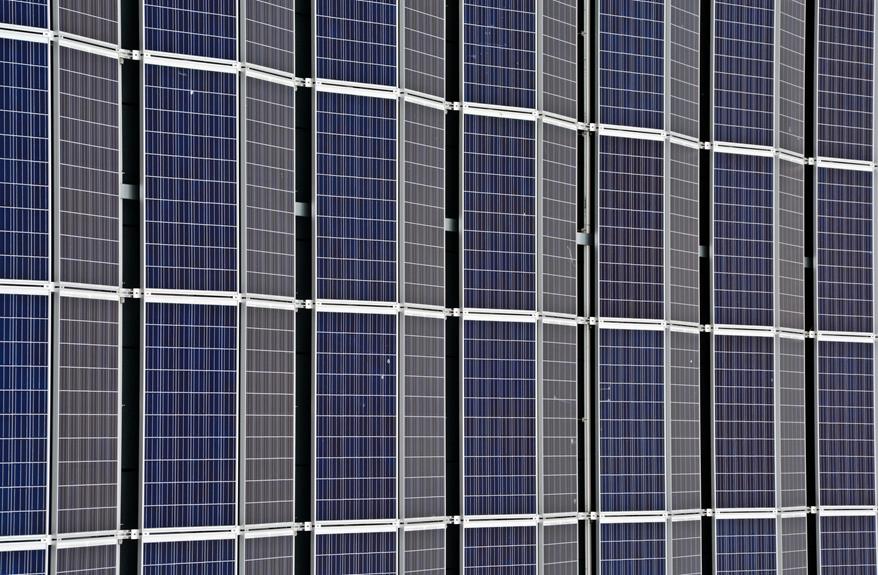Can You Really Save Money With Solar Panels
Imagine you're standing in a lush garden, tending to your plants and marveling at how they thrive under the warm rays of the sun. Just as the sun nourishes your plants, solar panels have the potential to nourish your finances.
Can You Really Save Money With Solar Panels
But is it really possible to save money with solar panels? In this discussion, we will explore the various factors that come into play, from government incentives and energy savings to long-term return on investment and maintenance costs.
Can You Really Save Money With Solar Panels
By the end, you'll have a clearer understanding of whether solar panels can truly be a worthwhile financial investment.
Can You Really Save Money With Solar Panels
Government Incentives and Solar Panel Costs
Can You Really Save Money With Solar Panels
Government incentives can greatly reduce the upfront costs of installing solar panels on your property. By offering financial assistance, tax credits, and grants, the government encourages homeowners to transition to clean energy sources like solar power. These incentives not only help you save money but also contribute to a sustainable future.
Can You Really Save Money With Solar Panels
One of the most significant incentives is the federal investment tax credit (ITC), which allows you to deduct a percentage of the total installation costs from your federal taxes. Currently, the ITC offers a 26% credit, making solar panel installation more affordable. However, it's essential to act quickly as this credit is set to decrease in the coming years.
Can You Really Save Money With Solar Panels
Additionally, some states offer their own incentives on top of the federal ITC. These can include grants, rebates, and property tax exemptions. By taking advantage of these programs, you can further reduce the costs associated with installing solar panels.
Can You Really Save Money With Solar Panels
Government incentives not only make solar panels more accessible but also contribute to a sense of belonging in a community that prioritizes environmental sustainability. By joining the movement towards clean energy, you become part of a larger network of individuals and organizations committed to reducing their carbon footprint and preserving our planet for future generations.
Energy Savings and Reduced Monthly Bills
By installing solar panels on your property, you can significantly reduce your energy costs and enjoy lower monthly bills. Imagine the satisfaction of seeing your energy bills decrease month after month, giving you more control over your finances and the freedom to spend your hard-earned money on things that truly matter to you.
Solar panels harness the power of the sun to generate clean, renewable energy for your home, eliminating or greatly reducing your dependence on traditional electricity sources. This means that you can say goodbye to soaring energy prices and unpredictable bill fluctuations. With solar panels, you can lock in your energy costs for years to come and protect yourself from the rising prices of fossil fuels.
Not only will you benefit from immediate savings on your monthly bills, but you'll also be making a positive impact on the environment by reducing your carbon footprint. Your decision to go solar won't only save you money but also contribute to a sustainable future for generations to come.
Long-Term Return on Investment
Investing in solar panels offers a long-term return on your investment, allowing you to enjoy both financial savings and environmental benefits. Not only will you save money on your monthly energy bills, but you'll also contribute to a cleaner and more sustainable future. Solar panels generate electricity from the sun's energy, reducing your reliance on traditional energy sources and their associated costs. Over time, the savings can add up significantly.
One of the main advantages of solar panels is their durability and longevity. Most solar panels come with warranties that guarantee their performance for 25 years or more. This means that you can expect to enjoy the benefits of solar energy for decades. With proper maintenance, your solar panels can continue to generate electricity efficiently, providing you with ongoing savings.
Moreover, solar panels increase the value of your home. Studies have shown that homes with solar panels sell faster and at higher prices than those without. This means that not only are you saving money on your energy bills, but you're also making a valuable investment in your property. By installing solar panels, you aren't only saving money for yourself but also contributing to a sustainable and environmentally friendly community.
Maintenance and Repair Costs
To ensure the continued efficiency and longevity of your solar panels, regular maintenance and occasional repair costs may be necessary.
While solar panels are a durable and low-maintenance energy solution, they still require some attention to keep them operating at their best. Routine maintenance tasks include cleaning the panels to remove dirt, leaves, and other debris that can obstruct sunlight absorption. Additionally, checking the wiring and connections for any signs of wear or damage is important to prevent any potential issues. These maintenance tasks can typically be done by the homeowner or a professional solar panel technician.
In terms of repair costs, it's important to note that solar panels are designed to withstand harsh weather conditions and are built to last for many years. However, accidents or unexpected events can occur, leading to the need for repairs. In such cases, the cost of repairs will vary depending on the extent of the damage and the specific components that need to be replaced. It's always a good idea to have a warranty in place that covers repairs, as this can help reduce any potential out-of-pocket expenses.
Environmental Benefits and Future Savings
After addressing the maintenance and repair costs associated with solar panels, let's now explore the significant environmental benefits and long-term savings they can provide.
- Reduced carbon footprint: By harnessing the power of the sun, solar panels generate clean, renewable energy without producing harmful greenhouse gas emissions. This helps combat climate change and reduces your carbon footprint, contributing to a healthier and more sustainable planet.
- Lower energy bills: Installing solar panels can significantly reduce your monthly energy bills. By generating your own electricity, you become less reliant on traditional energy sources, such as fossil fuels. This not only saves you money but also protects you from rising energy costs in the future.
- Government incentives and tax credits: Many governments offer incentives and tax credits to encourage the adoption of solar energy. These financial benefits can help offset the initial installation costs and make solar panels even more affordable. Additionally, some utilities may offer net metering programs, allowing you to sell excess energy back to the grid, further reducing your expenses.
Frequently Asked Questions
How Long Do Solar Panels Typically Last and What Happens at the End of Their Lifespan?
Solar panels typically last around 25-30 years before their efficiency starts to decline. At the end of their lifespan, they can still generate electricity, but you might consider replacing them for optimal performance.
Are There Any Tax Credits or Rebates Available for Installing Solar Panels?
There are tax credits and rebates available for installing solar panels. For example, you can receive a federal tax credit of up to 26% of the total cost, which can help you save money in the long run.
Can Solar Panels Still Generate Electricity on Cloudy Days?
On cloudy days, solar panels can still generate electricity, although it may be at a reduced rate. The amount of electricity produced will depend on the level of cloud cover and the efficiency of the panels.
What Happens if My Solar Panels Produce More Electricity Than I Consume?
If your solar panels produce more electricity than you consume, the excess energy can be fed back into the grid, earning you credits or even money. It's like a fruitful exchange, benefiting both you and the environment.
Are There Any Potential Drawbacks or Limitations to Installing Solar Panels on My Property?
There are potential drawbacks and limitations to installing solar panels on your property. It's important to consider factors like upfront costs, maintenance, and the amount of sunlight your location receives before making a decision.
Conclusion
So, now that you've learned about government incentives, energy savings, long-term returns, and maintenance costs, it's clear that solar panels can truly save you money in the long run.
They're like a shining beacon of financial freedom, lighting up your wallet with their energy-efficient glow.
Don't wait any longer – hop on the solar bandwagon and start reaping the benefits today!

